Colombia I: The Land of "Oh"
- Sep 1, 2019
- 8 min read
Updated: Sep 30, 2019
There are entrances that make a statement and there are entrances so common they pass unnoticed. And then there’s sneaking in the back door. No matter how legal our arrival in Colombia was, driving the bike onto solid ground for the first time after three days at sea felt underhand and secretive. Unloading in a cow pasture will do that to you.
As the Stahlratte sailed away, we putted down a muddy channel in our cow transporter. At a break in the jungle the old wooden ramp was lowered over a patch of slick sand. One by one the fully-loaded bikes roared up and out, the recent rest making their sudden spurts of energy appear more powerful. The crew had only opened one gate, never thinking of a sidecar, and Pferdi couldn’t make it until the old pallets and oil drums were moved aside. Second time around Fran started off from the back of the boat and flat out in first gear, made it through. He proudly claims he got airborne between the end of the ramp and hitting the ground.
Turbo is the last outpost and literally the end of the road before the Darien Gap and Panama border. It’s one of those small Colombian towns with a suspiciously high amount of gasoline sales but I’m sure that has absolutely nothing to do with drugs. After disgorging us onto the field, the boat left us with an agent who was our guide to customs. Several fields later we reached the main road into town. Pretty soon however the streets turned to mud and the larger bikes skidded and slid with one grazing a car door before it went down. That led to an interesting 30 minutes where it seemed the whole of Turbo came out to watch. Losing the agent along the way, we eventually made it to customs which was inside a military zone. We arrived at lunchtime but they surprised us by staying on and processing all 9 motorcycles in less than 2 hours. The politeness and friendliness of both army and customs officials were a happy welcome to Colombia.
Slideshow
Everyone but us and Marvin was heading to Cartagena so we said our goodbyes. Arriving in Medellin two days later the city was busy and congested, and very hilly with the well-off living in high-rises and the less well-off down below in small, concrete block homes. Getting used to the Colombian driving habits kept Fran white-knuckled and sometimes yelling “Loco!” at the top of his voice. Most unlike him. I kept my visor down and my eyes closed.
We took a few days respite in the lake region of Guatape and driving through the countryside our mouths were like giant “O’s, so gobsmacked were we at the beauty of it all. Every corner brought higher mountains, taller palm trees and sighs of “Ohhhh”, and whoever said Ireland is the Emerald Isle never saw Colombia. The hillsides had shallow terraces blanketed in neon green grass, so velvety and rumpled it made me think of my grandmother’s chenille bedspreads. Nestled among the greenery, the villages stood out with red tile roofs and men wearing white hats, shirts and pants all had striped shawls over one shoulder. We felt small and insignificant winding our way through such vastness and everywhere we went we were greeted with smiles and “Bienvenidos” to Colombia.
Guatepe had mostly visitors from Medellin and a smattering of backpackers. Twice we were offered a poem recital from the same aging hippy, for the small sum of 10,000 pesos. We took a day trip to San Rafael where we drank coffee on the plaza among old men while a raggedy specimen assigned himself to minding our bike. This wasn’t something we were aware of until we got back, and it wasn’t optional. Drinking the best cup of coffee ever (.29 cents p/cup), the only blot on the landscape was an old, red SUV which had followed us down the mountain and was now parked nearby. When we’d passed it earlier, a large camera was stuck out the window and stayed on us all the way. After paying off our minder they approached, and ordered us to follow them out of town. We reached a small swimming hole and got an invitation to their BBQ. All we could understand was “carne” (meat) but we followed them anyway. Again, it didn’t seem optional. That’s how we ended up spending the day with our stalkers, who really were four, free-lance TV reporters, scouting for something interesting.
Eating a lot of meat, drinking beer and swimming with grannies, kids and dogs, we were the only foreigners there. The picnicking families regarded us with mild amusement and Pferdi posed for photographs. What a great day it turned out to be. Julian interviewed us, Juan Jose recorded all with his drone and Wilbur and Gustavo insulted each other with goofy affection, a lot of which I think was for our benefit. All the while, the food kept coming. Who knew a menu of “carne” could be so varied and tearing my teeth across a piece of neck that wouldn’t separate, I thought really, one would be better off not knowing.
Slideshow
Back in Medellin we needed to find a home for the bike. Our ever-faithful friends from California were visiting again and we had flights to the Pacific coast. The Chocó department is mostly rainforest that reaches all the way to the ocean, and is very wet. We’d rented a house in Nuqui which was accessible only by plane or boat. Within 5 minutes of asking the Colombian moto group for help, we had two offers of a place to park. Milton and his family were the nicest people but we still felt a wrench when we left. It was the first time we and Pferdi were separated in nearly two years.
We (four adults and three kids) flew to Bahia Solano with bags packed with pasta, rice and beans, and 3 bulbs of garlic. We were warned there was nothing near the house but there was a fresh water spring somewhere in the forest that provided drinking water. After landing we stopped in town to pick-up more dried goods, beer, oil and a tray of 30 eggs tied with string. There was a dismal display of fresh produce which we stupidly rejected. We were then dropped off at a beach where, balancing the groceries, we took off our shoes and waded out to the waiting boat. There followed the worst ride of my life. After two hours of head-jarring pounding as the front of the boat slammed down onto solid water, sea sickness might have been preferable.
The house was right on the beach, with jungle behind. The owner’s mother was living close by and both homes were no more than two open platforms facing the ocean. Our bedrooms had doors but no locks, and windows with no glass. No matter, there was nobody else around. We did have flushing toilets, a two-ring burner, mosquito nets and showers made of local stone and fed by the spring. It was off-the-grid so our days were determined by the sun and the moon. When it got bright, we got up, when it got dark, we drank beer, watched a praying mantis mesmerized by the candle flame and retired early. When the tide was fully in, it reached the end of our steps and in our dreams the noise of the waves sounded like gales on an Irish November night.
Slideshow
The 30 eggs were gone in two days so we set-off down the beach to find the store. At the end of our stretch, a small headland blocked the way and the water was too deep to walk around. We went into the jungle and followed a small, muddy trail. For the next 30 minutes we alternated between beach and thick foliage, the kids keeping up as casually as if they were walking across the parking lot to Von’s. We eventually reached a river and could see some small buildings on the other side. The tide was out so it was only ankle-deep. The ‘village’ consisted of a few empty eco-cabins, which mostly resembled garden sheds on stilts, and a few concrete block houses. The people here were Afro-Colombian and I had to remind myself we were on the Pacific and not the Caribbean coast. The shop was a small storeroom in someone’s house, the owners staring at us from a table in an otherwise empty space. I think all our spirits sank a little when we peeked around the door. There were cleaning products, bags of chips and barrels of rice and beans, and beer, crates and crates of beer. A least one God was smiling on us. When we asked for fresh produce, and bread, the answer was no, but they did have eggs.
Each shopping trip had to be planned around the tides. One day we cut it fine and walked home in water up to our ankles with little waves swirling around trees that, less than an hour earlier, were providing shade on the sand. Once in the forest, we came across four or five soldiers, one washing his clothes in a stream. Twice we had to ask for a boat ride across the river. The second tray of 30 eggs made it home with only 3 casualties which Julia deftly rescued. They were gone in a day and a half; I’d no idea growing kids could eat so much. When we went back for more we were told there’d be none till Tuesday, the day after we were due to leave. That was the end of the fresh food, apart from the two fish we bought from a passing boat. The last days featured a rice and beans menu for breakfast, lunch and dinner. Fran’s quite the expert at cooking beans but even with the end of the Medellin garlic and herbs, we were hard-pushed to get excited about mealtimes. We kept the kids from mutinying by adding sugar to warm rice and giving them free rein to the lurid, orange crackers found in the far corner of the shop. Their red wrapper had snowflakes and other Christmas references best not thought about. The kids did their bit by bringing a couple of coconuts up from the beach and Soenke hacked them open with his penknife. (Now we know why people in this part of the world walk around with machetes.) At least dessert was special.
Apart from the owner’s handyman / gardener, nobody ever came to our beaches. It was as if we owned all the land and the sea around us. The kids explored the rock pools before breakfast and watched hermit crabs tend house in empty coconut shells. Late afternoons were spent swinging in the hammocks. There was a rumor of another town further up the coast to our right but when the boys went looking for it, they found a river too wide to cross so it was back to the storeroom and glad of it.
Slideshow
On the last day Fran and I got up early and in the white, morning light walked the last of the empty bottles back to the village. I wanted to think they’d miss us but they only looked sad when we said we didn’t need any more beer. Surviving the second boat ride, we spent the last night in Bahia Solano. Anchoring among the reeds, we waded through floating trash to the shore. The streets were muddy and wet and damp clouds hung low on the hills. Tuk tuks ferried us and everything else around town, from school children to broken-down motorbikes. The whole place hummed and vibrated with life as if carried along on invisible toy train tracks.
Returning to a more comfortable world, we spent our last days together in the verdant valleys of the Zona Cafetera. The drive from Medellin was spectacular but slow with endless construction and road closures that went on for miles, and hours. The new house had soft beds and shuttered windows, and balconies overlooking a perfect garden and pool. There were no ants on the dining table, we didn’t have to strain our coffee through a 20-year old sieve, and Julia and I at last got to open a bottle of wine. But I know that in 10 years’ time, that will be forgotten. What we’ll remember will be the spider living in his web in the shower and the nightly flashes of blue-white lightening on the dark horizon. And we’ll smile with fondness at the memory of our days as castaways.





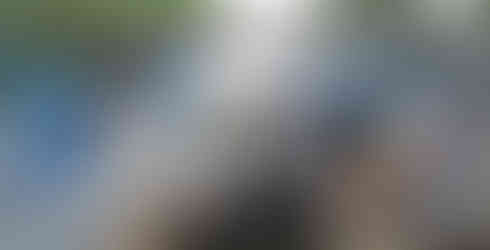



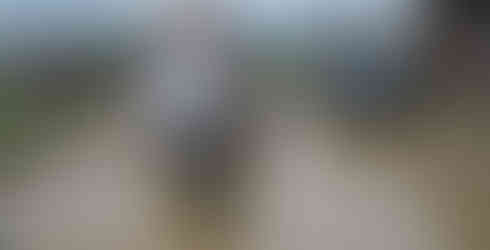

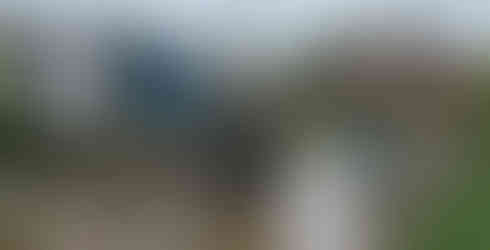

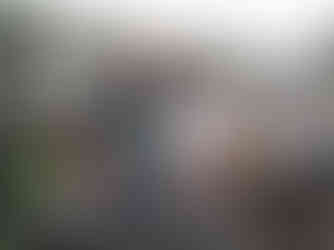


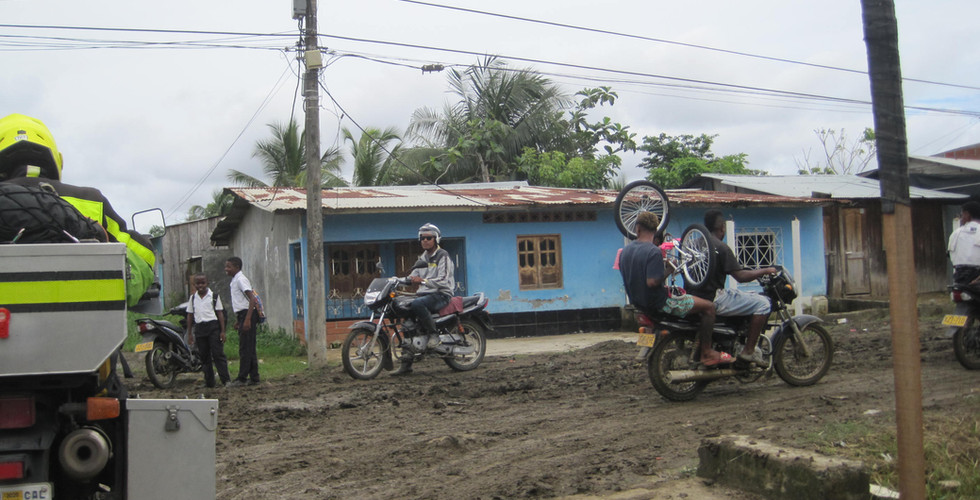
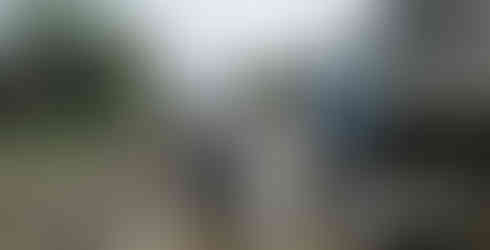


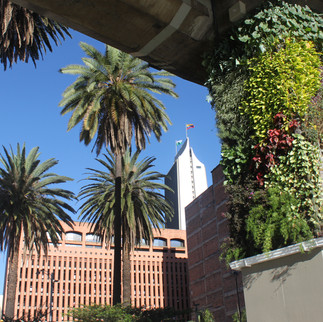



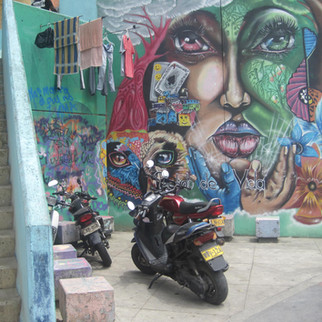
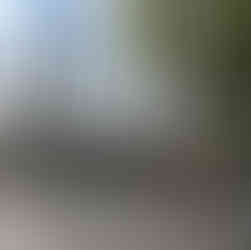










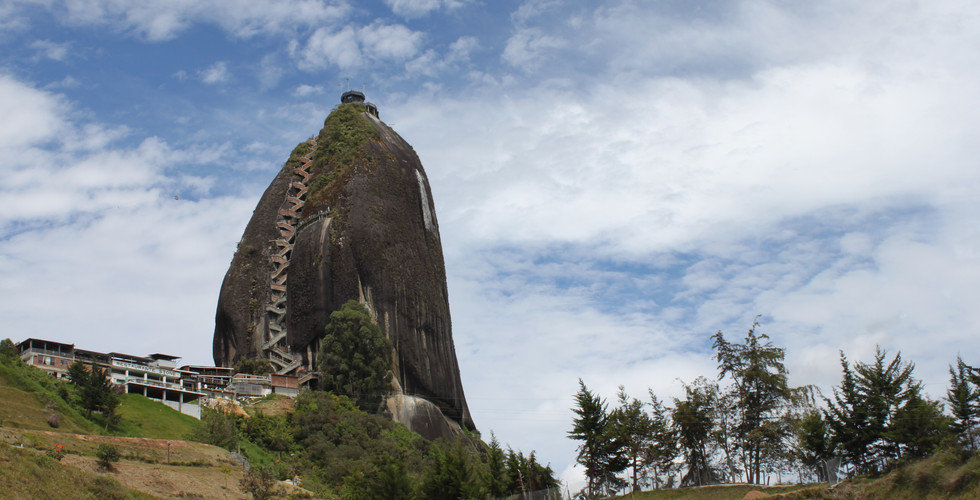



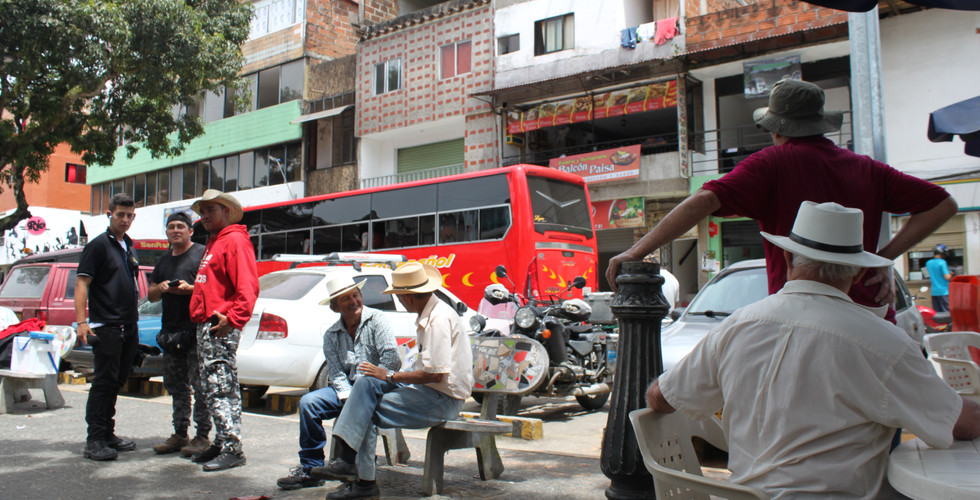
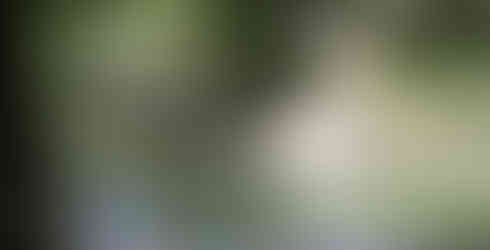

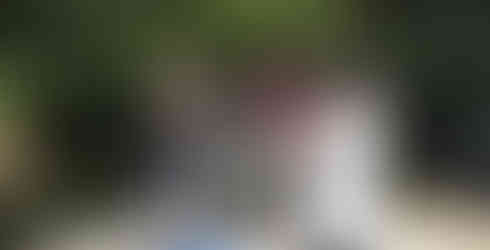


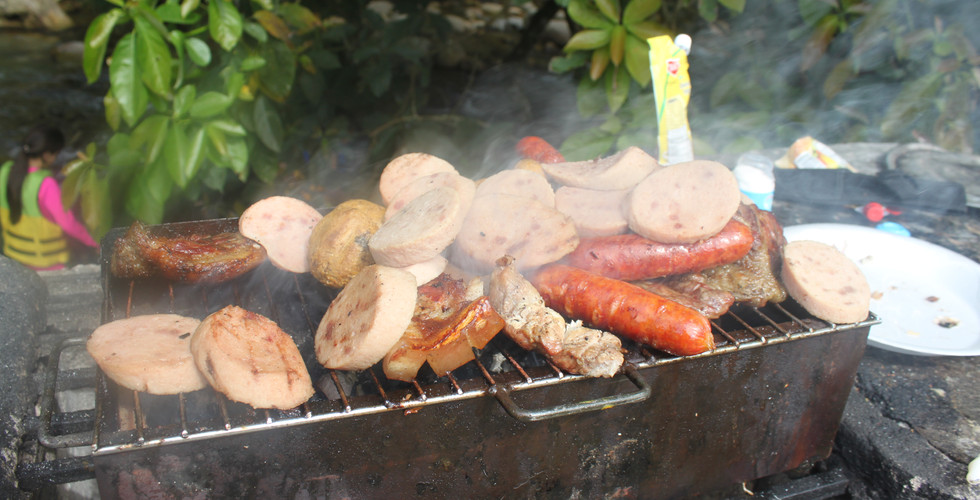
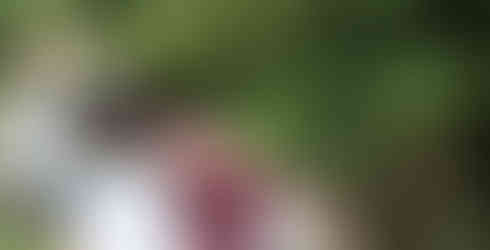


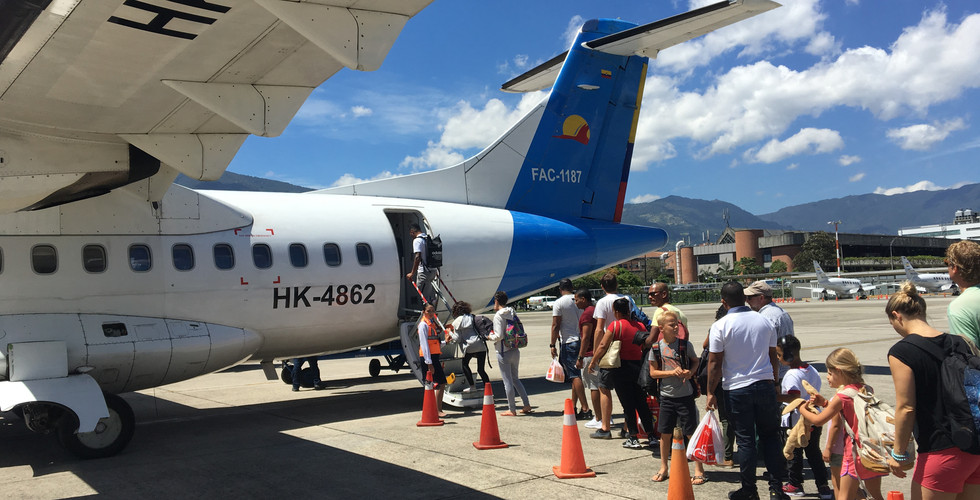


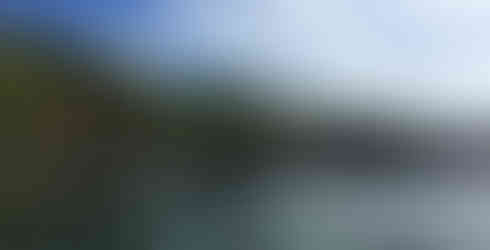


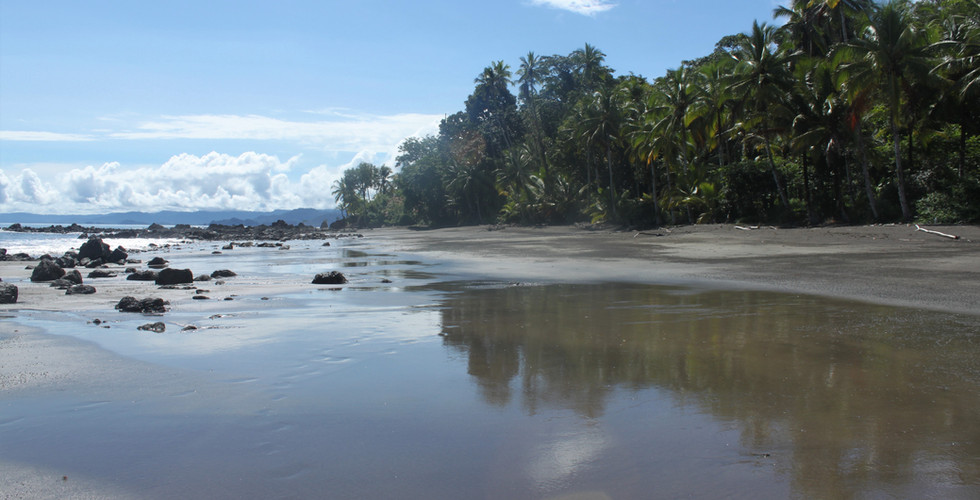
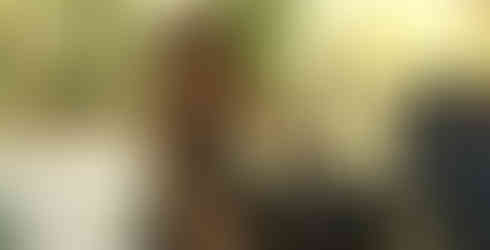

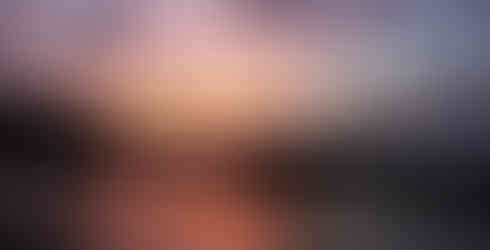


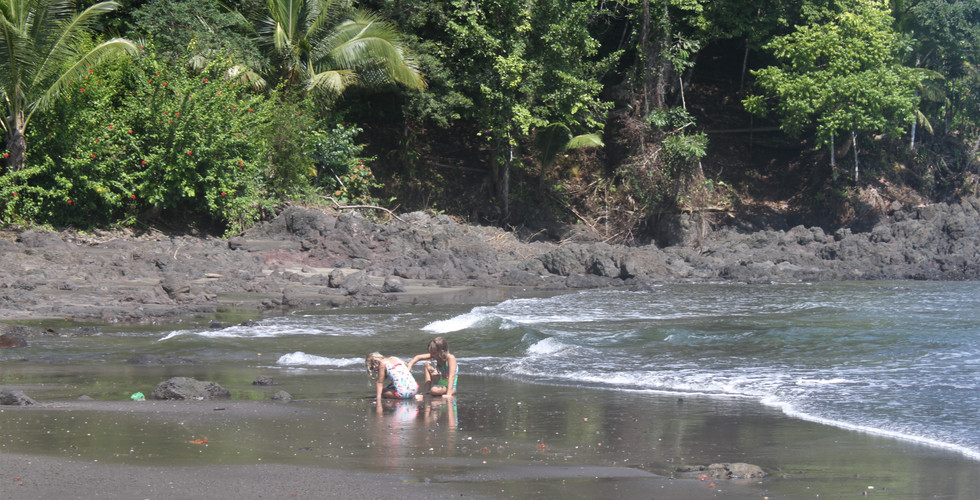

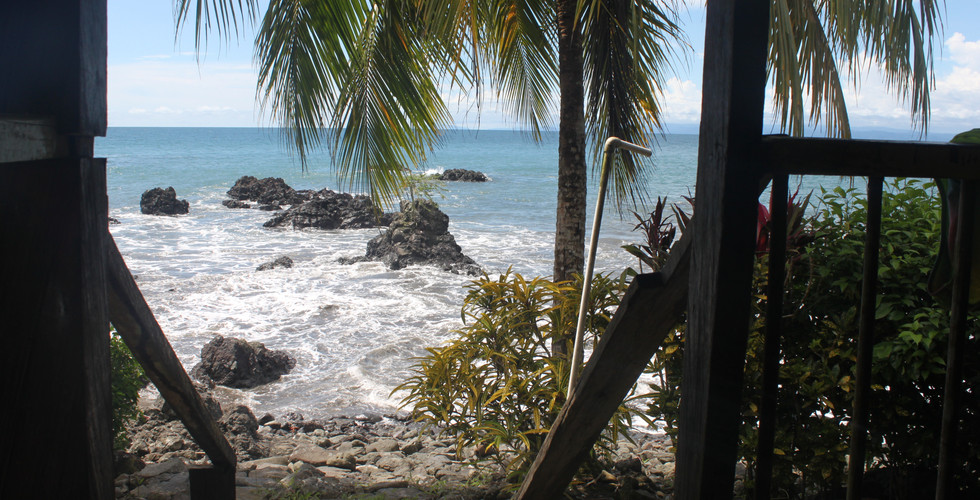







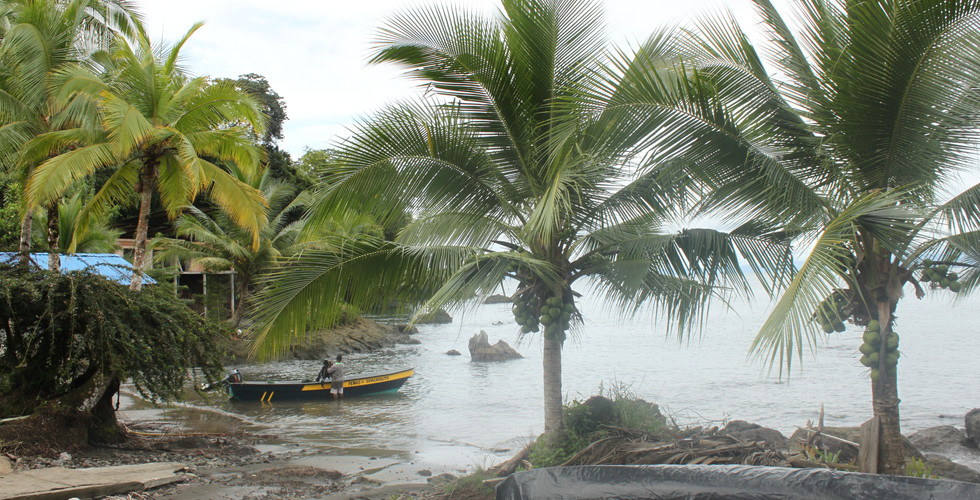
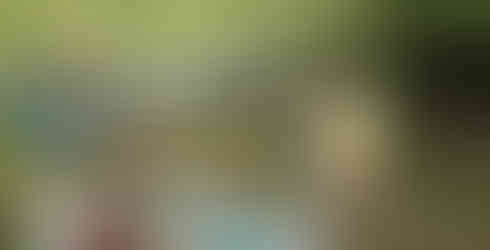


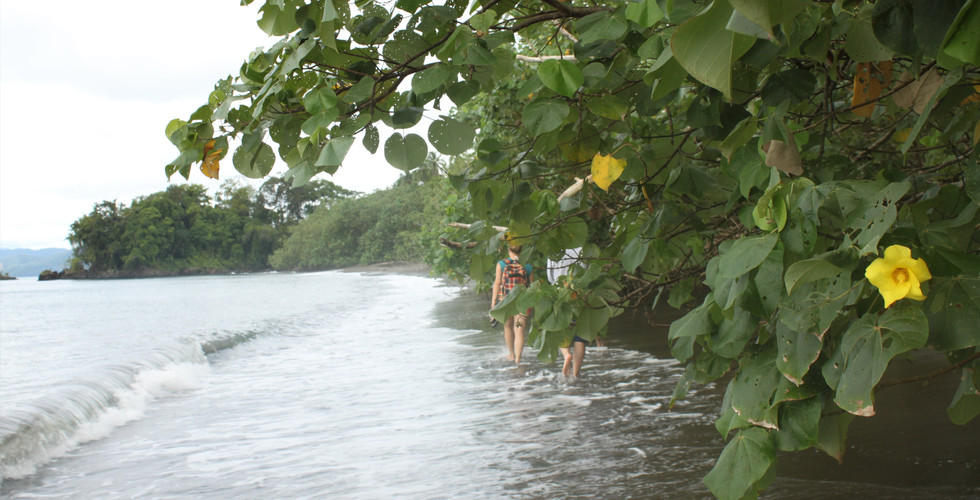
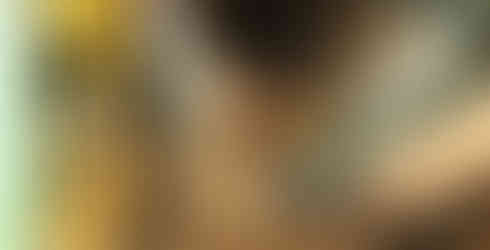

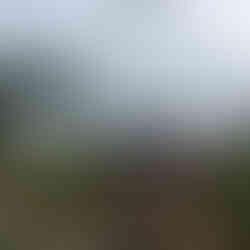










Comments